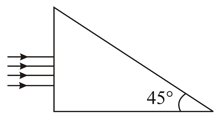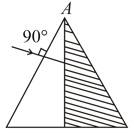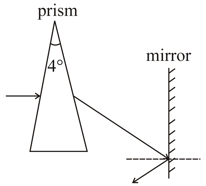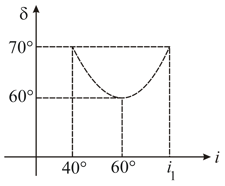Embibe Experts Solutions for Chapter: Ray Optics, Exercise 1: Exercise-1
Embibe Experts Physics Solutions for Exercise - Embibe Experts Solutions for Chapter: Ray Optics, Exercise 1: Exercise-1
Attempt the free practice questions on Chapter 30: Ray Optics, Exercise 1: Exercise-1 with hints and solutions to strengthen your understanding. Beta Question Bank for Engineering: Physics solutions are prepared by Experienced Embibe Experts.
Questions from Embibe Experts Solutions for Chapter: Ray Optics, Exercise 1: Exercise-1 with Hints & Solutions
In the displacement method, a convex lens is placed in between an object and a screen. If one of the magnification is and the displacement of the lens between the two positions is , then the focal length of the lens is:
A beam of light consisting of red, green and blue and is incident on a right angled prism. The refractive index of the material of the prism for the above red, green and blue wavelengths are and respectively. The prism will-

A ray of light is incident normally ao the refracting face of the prism of refracting angle . The ray of light comes out at grazing emergence. If one half of the prism(shaded position) is knocked off, the same ray will-

A horizontal ray of light passes through a prism of index and apex angle and then strikes a vertical mirror,as shown in the figure. Through what angle must the mirror be rotated if after reflection the ray. to be horizontal?

The curve of angle of incidence versus angle of deviation shown has been plotted for prism. The value of refractive index of the prism used is:

A beam of monochromatic light is incident at on one face of an equilateral prism. The angle of emergence is , then the angle of minimum deviation is:
A parallel beam of white light falls on a convex lens. Images of blue, red and green light are formed on other side of the lens at distances and respectively from the pole of the lens. Then:
Which of the following quantities related to a lens does not depend on the wavelength of the incident light?
